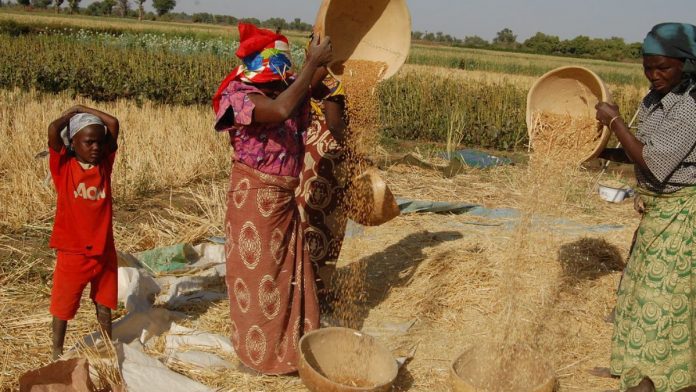News in brief:
– The Nigerian government has distributed agricultural inputs to 1,400 farmers in Bauchi state for the dry season wheat farming season, aiming to boost domestic production and enhance food security.
– This initiative provides essential inputs and land access to farmers, with beneficiaries expressing appreciation for the economic benefits and improved food security the program promises.
Nigeria’s federal government has distributed agricultural inputs to 1,400 farmers across Bauchi state for the dry season wheat farming season with the aim of boosting domestic production and enhancing food security in the state.
Hon. Sadiq Tijjani Kida, an agro-dealer overseeing the project in collaboration with the Federal Ministry of Agriculture and Food Security (FMAFS), also confirmed the allocation of 1,400 hectares of land for wheat farming in the Bauchi zone. He stated that the final batch of farmers will receive their land allocations before the December 15, 2023. He added that the timeliness was to ensure that all participants were ready to commence cultivation.
The intervention provides farmers with essential agricultural inputs such as ten bags of fertilizer (three Urea, seven NPK), wheat seedlings (one bag foreign and one bag local), pesticides, and insecticides. The inputs are available upon a 50% down payment of the total cost, amounting to â¦160,000.
This initiative falls under the National Wheat Production Programme (NAGS-AP) by FMAFS. It allocated a total of 3,000 hectares to Bauchi state distributed across three locations: Jama’are, Azare, and Misau.
Beneficiaries expressed their appreciation for the government’s support. They also highlighted the potential economic benefits and improved food security the program promises.
Zuwaira Ibrahim, a beneficiary from Bauchi zone, said that he was grateful for the agricultural inputs as it would improve his economic status, and also contribute to the availability of food supplies.
Also, Maigari Mohammed, another beneficiary, echoed these sentiments. He expressed gratitude to the government and agric ministry but appealed for the continuation and expansion of such initiatives to reach more farmers in the state.
Overall, experts affirm that the intervention by the federal government demonstrates its commitment to supporting the agricultural sector and promoting food security in Nigeria. By providing essential inputs and land access to farmers, the program aims to achieve specific food goals like increasing domestic wheat production, reducing reliance on imports, and empowering rural communities.



